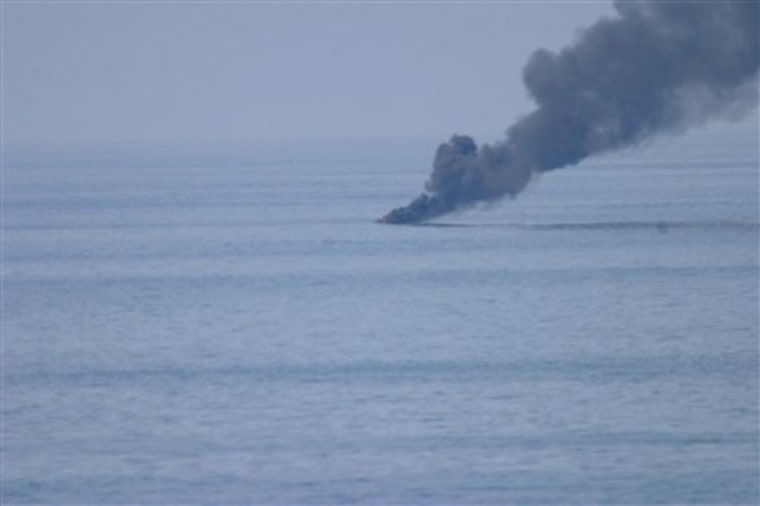The U.S. Navy on Friday kept its eye on a Japanese tanker taken over by pirates off Somalia's coast, while a top U.S. official said that piracy remains a "very serious security problem" in the region.
Earlier this week, a North Korean tanker overrun by pirates was taken back after crew members overpowered the hijackers in a bloody fight. The hijackers were being held aboard the ship until they can be handed over for prosecution at a port.
After the clash, Navy personnel boarded the North Korean boat to treat the wounded. The U.S. efforts came despite its hostile relations with the communist country over its nuclear program.
"You'll always find our Navy prepared to help any ship in distress and certainly any ship that is confronting pirates," said Assistant Secretary of State Christopher Hill, the top American envoy to six-nation talks on North Korea's nuclear disarmament.
"This is a very serious security problem on the African coast. These are not pirates who will remind you of Johnny Depp. These are quite different kinds of pirates," Hill told reporters in Seoul, South Korea.
"So, I think we were pleased to be able to help in this regard and I hope the (North) understands that we did this out of the sense of goodwill that we have on this," he said.
The U.S. Navy's guided missile destroyer USS Porter came to the aid of the Japanese chemical tanker this week, at one point opening fire to destroy pirate skiffs tied to it. On Thursday, the U.S. Navy said that it intended to remove the pirates from the Japanese tanker.
The pirates have demanded a navy ship close to the hijacked vessel move away, said Tess Villanueva, wife of the crew's foreman, Laureano. It was unclear whether the Porter, which is part of the coalition force in the area, is the ship closest to the Golden Nori.
"Apparently the navy ship was getting closer to them," she told The Associated Press in the Philippines. "The good news would be if they (pirates) leave the ship."
Negotiations under way
Negotiations have started for the release of the tanker, anchored in Somali waters with 23 crew members from the Philippines, South Korea and Myanmar, said Josefina Villanueva, Laureano's sister.
Josefina Villanueva said there had been no ransom demand from the pirates. "The talks are just starting. I think the pirates will later on demand something," she said.
On Friday, Philippine Foreign Affairs Undersecretary Esteban Conejos said the captain of the ship contacted the Japanese company that owns the vessel the day before and reported that the crew was fine.
There has been no direct contact between the Philippine government and the pirates, he added.
"The problem is there is no central government in control (in Somalia)," he said.
The Golden Nori was carrying a load of benzene when the USS Porter fired on two pirate boats tied to the chemical tanker Sunday, sinking both. Benzene, an industrial solvent, is both highly flammable and can be fatal if too much is inhaled. The U.S. military said it was aware of what was onboard when it fired at the skiffs.
Somali pirates are trained fighters, in some cases linked to powerful Somali clans, outfitted with sophisticated arms and equipment, including GPS satellite instruments. They have seized merchant ships, ships carrying aid, and once even a cruise ship.
The United States also has supported efforts to quell an Islamic insurgency in Somalia.
Somalia has been without a functioning government since warlords overthrew dictator Mohamed Siad Barre in 1991, then turned on each other. The current government was formed in 2004, but has struggled to assert any real control.
.
